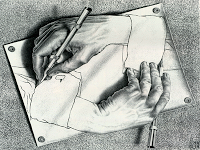The Governing Dynamics of Coaching – A Unified Field Theory of Sport Preparation
To begin, “Hvala prijatelju” at a distance Mladen. Mladen and I first generated our correspondence sometime in 2003/2004 and I am glad to see how Mladen has developed professionally and to observe his success. I wrote this post for Mladen’s website and audience to provide an overview of my latest book “The Governing Dynamics of Coaching- A Unified Field Theory of Sport Preparation”.
Take a moment to consider my position as a consultant within the worlds of sport and military special operations- I synthesize my fields of influence to produce an aggregated approach to thinking about and solving problems. My fields of influence are primarily, and in no particular hierarchy: physics, mathematics, psychology, aesthetics, music, *sport science, and gastronomy.
I include an asterisk (*) in front of sport science due to the distance between my definition of sport science and the general trend of sport science as it is self-described by many of its practitioners; which seems to be the grand mistake of nothing more than clinical strength coaching. I, on the other hand, define sport science as the branch of science that investigates the scientific underpinnings of sport (which, I’ll remind everyone, occurs on a field, court, track, rink, road, mountain, mat, the water, in a ring, cage, or pool) … not in a weight room.
Given the expanse and eclectic nature of my influences it should come as no surprise to any reader that my vision of, and logic behind, the future of sport coaching and military leadership is completely unconventional; yet, in my view, irrefutable.
The title and sub-title of my book are borrowed from mathematics and physics in order to signify two of my principle influences as well as the means by which these fields have long since recognized and identified the analog, if only in terms of which questions to ask, of what sport and military leadership have failed to, thus far…that is, the fundamental premise of the unification of knowledge.
Such a unification of what is knowable (understand that what is knowable regards the sum total of human knowledge, not merely what is locally known in any given profession) will, for one, render both coaches and military leadership objectively competent; something that virtually none on earth are currently according to my definition.
My definition of competence in these domains is illustrated by the Governing Dynamics as I have defined them in the book.
- Cultural Establishment
- Psychological Preparation
- Analytical/Intellectual Study
- Technical/Tactical/Sensorimotor Advancement
- Biodynamic/Bioenergetic/Biomotor Development
- Active and Passive Physiotherapeutic Interventions
From these, any, for all intents and purposes, derivative may be drawn in order to optimize the global, not Balkanized, preparation of an athlete, soldier, or special operator.
*Understand that while my consulting most typically regards sport and military, that these principles I speak of are universal and thus apply equally well to any conceivable organizational hierarchy.
Short of rewriting a book chapter, and know that, concordant with a statement by Elon Musk, I think and argue for first principles thinking in favor to analogy as it regards teaching and instruction, allow me, however, to summarize with an analogy in the interest of your amusement, time, and in addition to not dissuade you with excessive cognitive work before you’ve even read the book:
- Consider the disjoined nature of sport coaching’s segregated specialty fields- most of which know little about the other. All operating with cultural dysfunction that escalates in its dysfunction the higher the level of sport; reaching its apex at the highest levels.
From a physiotherapeutic standpoint, consider how infrequent a ‘return to sport’ protocol involves working backwards from the motion dynamics of the competition structure so as to ensure that the end stage rehabilitation consists of motion dynamics that most closely represent the competition structure (so that that the transition back into competition is seamless).
Further, contemplate the irony that distinct loading occurs, incongruently, between sport technical/tactical, physical preparatory, and active physiotherapeutic loading- analogous to a hypothetical symphony consisting of three movements that are written by three different composers…
Instead, envisage one composer (sport engineer) creating the masterpiece that is orchestrated by one conductor (global load manager- future of head coaching) executed by the different musicians (assistant coaches, physios, and athletes).
Once upon a time in this world walked musical giants, the likes of which will not likely be seen again because the aesthetics are largely a reflection of the culture of that time. The masterworks of Bach, Beethoven, Mozart, Brahms, Chopin, Mahler, Tchaikovsky…each a pioneering maestro who built upon the genius that came before them and integrated it into their own via the socio-politico-cultural dynamics of their era/geographical region.
The objective beauty of their work often merged with mind bending complexity. The result being compositional masterworks. In the case of orchestral composition, or even more so a Jazz Big Band’s production that includes the defining component of improvisation, I’ll ask you to consider the musical production being an analog of what any sport team’s, athlete’s, or military personnel’s preparation may look like. One that varies in its objective beauty and complexity according to the specifics of each group and the psycho-social-motion dynamics that characterize their endeavor.
Tactical, technical, physical preparation are, in fact, inseparable. Further, they are synonymous with one another. Consider:
- Every sport and military/tactical unit structure (which is to state, the means by which we objectively describe the motions that define that sport/tactical units actions) are often described using the language of technique and tactics (ergo the technical/tactical nature of this or that sport or tactical unit’s requirements)
- Now, consider a hierarchical diagram based upon technical and/or tactical motions and the derivatives become defined by bioenergetic, biodynamic, and biomotor outputs
- In order to describe the technical/tactical aspects of this or that sport or military/tactical unit we mustn’t allow any further dialogue to exist in a technical/tactical vacuum. Which is to state, that we must synthesize the currently factionalized divisions of technical/tactical and physical preparation because the technical/tactical execution of motions specific to sport and military are more than a set of postures that anybody can emulate.
- Granted, certain sports and military actions are much lower on the output scale than others; however, to rehearse/practice any set of sport/military actions at a mentionable intensity can no longer simply be accounted for as practice or training, separate from physical preparation, because any practice/training of mentionable intensity sport/military actions IS (Specific) Physical Preparation. Just as any physical preparation IS Technical Preparation because to consider physical preparation void of mechanical/technical efficiency is as irresponsible as any other incomplete consideration of preparation that has serious implications on the state of the athletes’/operators’ well-being.
- This is one of my many arguments for the synthesis of the two coaching/training divisions into one mode of preparation that must be engineered as a single blueprint
In my vision of the future of sport, there is no technical, tactical, physical preparation; there is only preparation of a given nature governed by objectively competent leadership and engineered by objectively competent engineers in the related subject matter. Such is the future of sport/military leadership as I define it must be if our descendants hundreds and thousands of years from now are to look back at this stage of sports infancy and acknowledge that what we accomplished was, in fact, commensurate with what was knowable (the sum total of human knowledge) at any given time.
The Governing Dynamics of Coaching has been written; and on this basis, I state with confidence and humility that the book will facilitate the optimization of any sport endeavor on earth.
James was kind enough to offer 10% discount for monthly members and 20% discount for Premium members when ordering his book “The Governing Dynamics of Coaching- A Unified Field Theory of Sport Preparation”. If you are a member of the Complementary Training, make sure to login and the discount code will be shown underneath.
If you are still not a member, make sure to take this opportunity and for $1 only for the first month become Complementary Training member and get the discount code for “The Governing Dynamics of Coaching – A Unified Field Theory of Sport Preparation” as well as many other benefits.











Responses